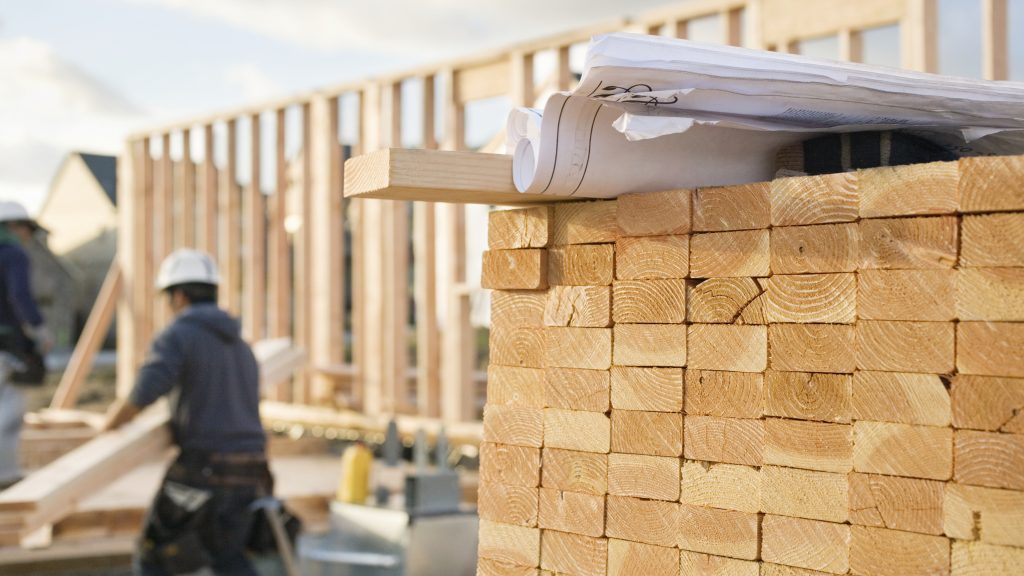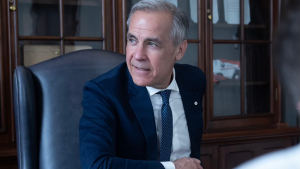Managing different types of risk was the focus of the CEO Roundtable discussion at the Canadian Construction Association conference, with the rise of theft, fire and water damage hot topics of conversation.
Silvy Wright, president and CEO of Northbridge Financial Corp., talked about trends in insurance risks and how they are different today than they were in the past.
“When I looked at the construction segment…the number one claim in terms of count is theft,” said Wright at the conference, which was held in Tucson, Ariz. “About 38 per cent of our claims, just in numbers, not in dollars, is theft, whether it’s auto, equipment. That is on the rise. We’ve seen it on our auto but we’re seeing it in construction as well. You’re saying, ‘why is it on the rise?’ Well supply chain issues make things very valuable.”
And thieves are becoming increasingly creative.
So how can you manage this risk? Technology is one option.
“Now you can buy a little $10 tag and throw it in your golf clubs so you don’t have to worry about losing them when you travel,” she explained. “The technology is getting cheaper and cheaper in terms of identification and being able to track vehicles, equipment…It’s a worthwhile investment.”
On the dollar front the two top claims are fire and water damage.
“Fire from construction is often as a result of hot work,” Wright noted. “On the water side, we’re seeing that mainly towards the end of a project and usually highrise buildings. When that happens it’s pretty severe. Faulty material, improper installation…it’s not a storm that created it, it’s generally the workmanship.”
It’s important to embrace the enablers of technology for competitive advantage, she added.
“I think that’s an opportunity for the construction industry in particular for productivity and safety,” said Wright. “For instance, surveillance of a project site, drones, it’s a very inexpensive way to do that. Smart helmets, the helmets have sensors and detect dangerous conditions for workers.
“It’s just getting so much more intelligent with regards to how we can increase the productivity and the safety…You’ve got to choose the ones that are cost beneficial, but it is getting cheaper.”
She also talked about risks associated with catastrophic weather events.
“The trend is not good. I think insurance companies around the world are very concerned with the increase in frequency and severity of these catastrophic events,” Wright said.
Procore CEO Tooey Courtemanche said as a global company he can see the risks faced in North America are similar to those faced in other parts of the world.
“The overall message I have for you all is that your challenges are not unique to Canada,” he said. “The challenges that every CEO that I talk to states the labour shortage is chronic, the lack of productivity is hurting their businesses, interest rates, inflation is delaying projects.”
When he speaks to customers, there does seem to be a fair amount of optimism about the future, he added.
“I always, in my calls with these folks, I ask them, ‘how are your backlogs?’” he said. “Across the board they remain very strong and healthy. There is a little bit of a cognitive dissonance that happens, which if you read the news and you read about all the stuff that is happening it sounds awful, but when these folks are running their businesses they are seeing that there still are areas of opportunity.”
With respect to the U.S. market and the Infrastructure Act, Courtemanche said a lot of customers are shifting their portfolio mix.
“They’ll go after alternative energy, infrastructure projects, where in the past they were doing commercial highrise or whatever else,” he said.
So what does the coming year hold for the industry?
“Two things that we’re watching is interest rates and inflation, which really go hand-in-hand,” said Wright. “The key for us is how bad the recession is going to be. There is a lot of talk that we think it’s going to be very much a slow, soft landing.
“In terms of recession, there is a very strong feeling that it’s going to come and of course we have to watch what happens in the States. But as you look at the stats, housing starts in the States have dropped, permits are dropping in Canada, so you are definitely seeing a slowdown.”
What Wright is really worried about is the correction that needs to be made from the last two years.
“If I can give you an example, you read about a lot of layoffs in the tech world,” said Wright. “Everyone was buying technology…and the technology companies grew like gangbusters, and they over hired and now what they’re doing is they’re laying all these workers off. They’re correcting what they did in the last two years.
“For me the question to all of us: Are you prepared for that? Or have you built your company for the last two years which really can’t continue in the next two.”
Follow the author on Twitter @DCN_Angela







Recent Comments
comments for this post are closed